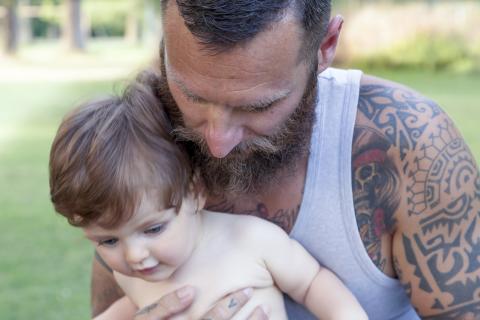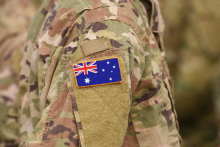Mental Health and the Wheel of Wellbeing

When we notice that gambling may be impacting different areas of our lives, it can bring feelings of stress and anxiety. The Wheel of Wellbeing helps us break down different areas of our life that we can focus on to look after ourselves. The Wheel of Wellbeing is an internationally recognised visual framework made up of six building blocks that underpin mental and physical health and wellbeing:
- Body (get healthy)
- Mind (keep learning)
- Spirit (show kindness)
- People (connect more)
- Place (take notice)
- Planet (embrace nature)
In this blog post, we look at these themes and some easy steps to improve your wellbeing and encourage safer gambling with help from Gambling Help Service Community Educator, Amy Creighton.
Body
Looking after our body benefits us mentally as well as physically. Research shows exercising regularly can:
- Reduce stress
- Reduce symptoms of mental illness like anxiety and depression
- Help recovery from mental health issues
- Help you think more clearly
- Improve your memory.
“Some people may fill their free time with gambling, not knowing how else to wind down from work or other commitments.,” Amy explains.
“You might find that since gambling, you’ve stopped engaging in active hobbies you once enjoyed, such as going to the gym, walking the dog, or playing sports. Revisiting old hobbies or trying new ones can encourage physical health and help reduce time spent gambling.”
Mind
You can’t ‘fix’ something you don’t understand. Educating yourself on the causes of unsafe gambling can help you understand what factors and triggers come into play for you. There’s heaps of helpful information online, such as Gambling Help Queensland’s self-help guide. This online booklet is a great resource for anyone who wants to learn more about the psychology behind problem gambling and ways to take control.
It might also help to keep a diary of the people, places, and activities that trigger your gambling urges, and what you can do to avoid gambling in that situation. You might like to keep a table like this:
| Trigger | Thoughts | Feelings | Coping Strategy |
| Going to the pub with a workmate | We usually have a few beers and go on the pokies | Nervous, worried | Plan a different activity away from a gambling venue |
Spirit
Amy explains that some people may gamble to avoid their worries or to increase their self-confidence.
“Being happy in who you are can help you feel more fulfilled and reduce the urge to gamble,” she explains. “Living by your values is a great place to start.”
Reflect on what’s really important to you in life, and the core values that mean the most to you. Consider whether you’re living by those values, and if not, how you can start. A counsellor can support you with this process if you need some extra help.
In the Wheel of Wellbeing, this building block also focuses on showing kindness. When it comes to problem gambling, self-kindness is crucial for recovery. Self-compassion has proven to help people overcome cravings, deal with the stresses of early recovery, and better manage their emotions. A recent study found those with problem gambling who had self-compassion were less likely to engage in risky behaviour and more likely to enforce self-control than those without self-compassion.
Here are some ways to be kinder to yourself:
- Acknowledge your mistakes, then let them go. You’re only human, and no one is perfect.
- Choose to focus on self-growth rather than self-improvement.
- Speak to and treat yourself like you would a close friend.
- Be easy on yourself and give yourself permission to move on to better things.
People
Some people gamble because they feel lonely.
An increase in gambling throughout the COVID-19 pandemic may be due to increased feelings of loneliness during this time. Australian media reported increases in online gambling during the pandemic.
A survey from October 2020 of people who had gambled in the last 12 months found:
- Nearly 1 in 3 survey participants signed up for a new online betting account during COVID-19, and 1 in 20 started gambling online.
- The proportion of people who gambled 4 or more times a week increased from 23% to 32%.
- Young men (18-34 years) were most likely to sign up for new online accounts, to increase their frequency and monthly spending on gambling (from $687 to $1,075), and to be at risk of gambling-related harm.
“People who are isolated during lockdowns may experience increased urges to gamble,” Amy explains.
“Social connection is a core human need, and it’s more important than ever to maintain our close relationships.”
Enjoying fulfilling relationships and feeling less alone may help reduce your urges to gamble. Some ways to stay connected with your loved ones during COVID might include:
- Texting
- Calling
- Video calling over Zoom
- Sending voice messages
- Sending video updates
- Playing online games together
- Watching Netflix together from afar.
Place
This building block is all about being present and mindful.
Practising mindfulness can help you take notice of your surroundings and yourself, keeping you in the here and now. Learning how to relax and be present can help you stick to your goal of reducing your gambling. Studies have demonstrated that weekly mindfulness therapy sessions can lead to “clinically significant change among individuals with gambling problems.” Using mindfulness techniques along with counselling support is shown to significantly reduce the risk of gambling harm.
A counsellor can help you find some relaxation and mindfulness strategies that work for you, which might include:
- Body scanning
- Breathing exercises
- Muscle relaxation exercises
- Sensory activities
- Gratitude list
- Meditation.
Planet
Gambling is often done indoors – especially in the current climate of COVID lockdowns.
Many studies have proven the positive impacts of nature on our mental health, such as reduced stress and improved mood.
Not only does getting outdoors help our mental health and wellbeing in general, but seeing green spaces has also been proven to help with urges in the context of many addictions. Research found having access to a garden or allotment was associated with both lower craving strength and frequency, while residential views featuring more than 25% greenspace evoked similar responses.
If you can, try to get some exposure to nature every day. You might like to:
- Go for a walk
- Ride your bike
- Start a garden
- Go to the beach
- Explore a local park
- Have an outdoor picnic
- Join your local men’s shed
- Spend your lunchbreak outside
- Check out your local community garden
- Add some indoor plants to your living spaces
- Drink your morning coffee on your patio or deck
- Work next to a window (if you work from home).
We explore more ways to avoid risky gambling here. If you need some extra support taking control of your gambling, talking to a counsellor can help.
Gambling Help QLD provides free, confidential support over the phone and in person.
Call the 24/7 gambling helpline on 1800 858 858 or learn about our counselling and other support options here.
Contact us
If gambling is impacting your life or a loved one's life, it's okay to reach out for help. It’s free and confidential.
Call the 24/7 Gambling Helpline on 1800 858 858
Face-to-face counselling locations




